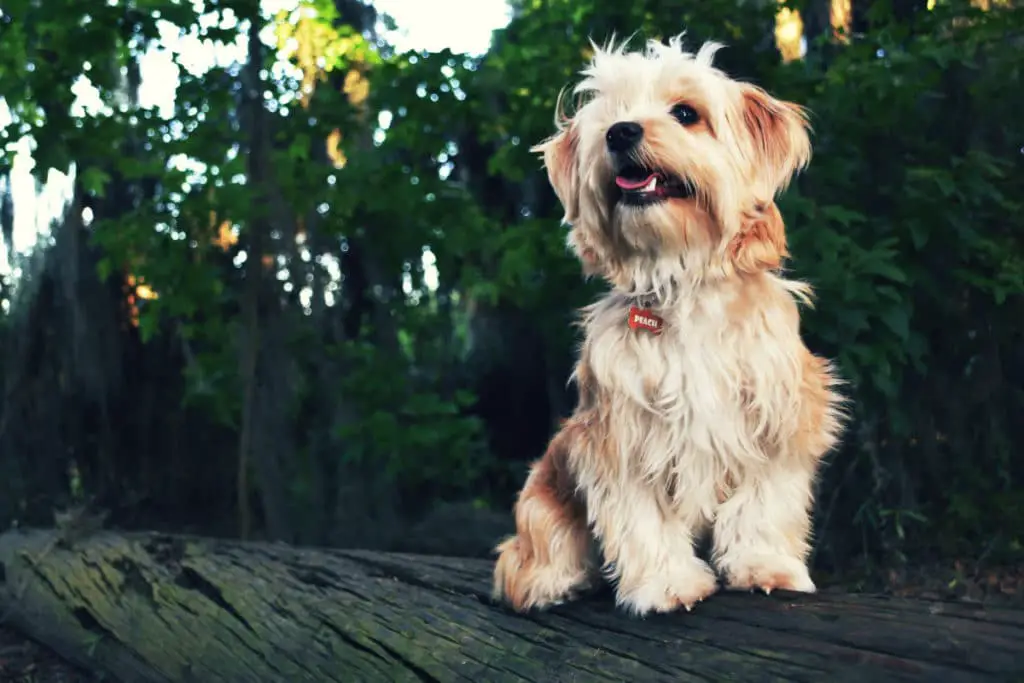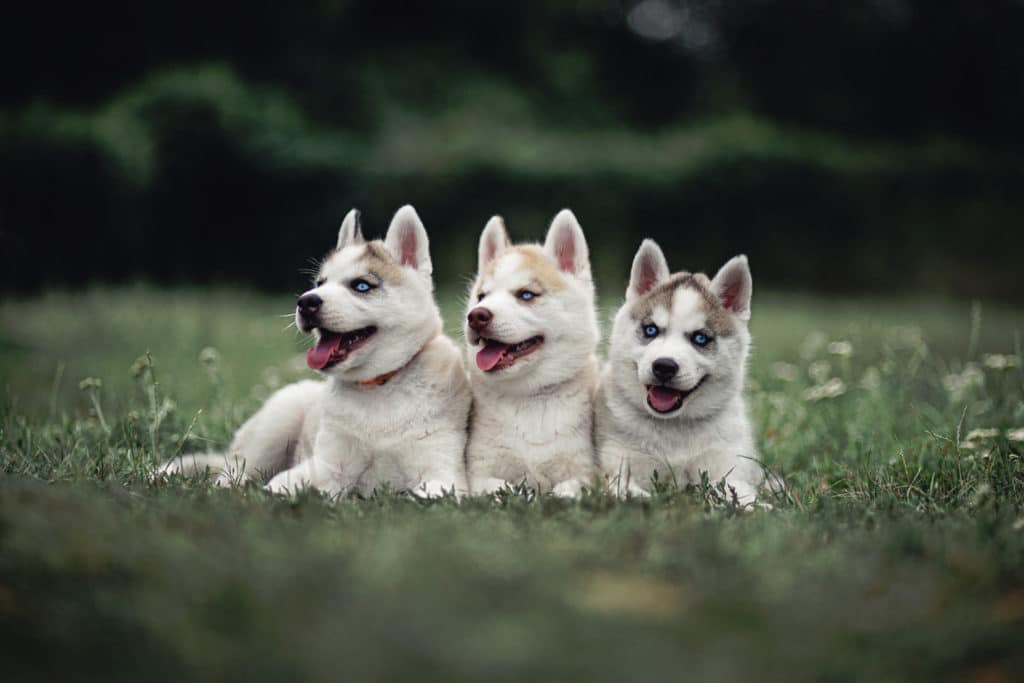Puppies are like kids. If you have a new puppy at home, you’d observe every little thing about your new pup, especially if you are a new pup owner. Everything about your pup would be a unique experience for you. So, if you observe an abnormality in your puppy, it would become very frustrating for you. One widespread abnormality like that is your puppy breathing fast or heavy. Keep in mind that this is common for puppies when they are at their peak of young life. Therefore, it’s not a surprise if your healthy puppy breathing fast.
Even though it’s normal for a puppy to breathe fast, it’s not always good. Suppose that heavy breathing is triggered by a medical condition or a disease. In that case, it’s essential to identify that and treat your pup. So, you must determine if your puppy is breathing fast or not.
Table of Contents
Puppy Breathing Fast VS Breathing Normal
Let’s categorize puppy breathing fast into two categories: normal fast breathing and breathing fast due to worrisome reasons. Normal fast breathing can happen when the pup gets excited or due to fear or stress. It can also occur when you take your puppy for a walk or if they are exhausted. All these things are logical reasons for your pup to breathe fast, so it’s not worrisome. But another kind of breathing fast is the one you should be concerned about because that may result from a medical condition.
Therefore, if you notice that your puppy is breathing fast or heavy without a logical reason, it’s best to get advice from a consultant or a veterinarian before thinking the worst. It’s for the best that you don’t ignore these kind of conditions even if your pup gets back to normal after a while because a trip to the vet might save your pup’s life.
This is what a puppy breathing fast looks like
- Tachypnea is the medical term doctors and veterinarians use to describe any kind of abnormal fast breathing.
If you need to understand if you need to be concerned about your pup’s breathing, the best way is to calculate the breathing rate of your pup.
How many Breaths per Minute is Normal?
According to the “Animal Emergency Center,” the standard breathing rate for most adult dogs is between 10 to 30 breaths per minute. But it’s a bit higher than that when it comes to puppies. Puppies usually breathe 15 to 40 breaths per minute.
You can learn more about breathing rates for dogs using this link.
But the trick is to know how to calculate your pup’s breathing rate. Otherwise, you don’t know for sure if your puppy is ok or not. You might tell if your puppy is breathing fast by observing the fast movement of their chest, but you need to know how fast is too fast.
How to Calculate the Puppy’s Respiratory Rate?
If you want to know that there is something wrong with your pup’s breathing, you will have to know your pup’s respiratory rate (breathing rate). When you count it, make sure that your pup is calm and relaxed. Also, make sure that your pup is not actively panting, which means your pup should close its mouth without the tongue sticking out.
Finding a moment when your pup is calm and not actively panting might not be easy since puppies are always very active. So, you will have to wait and catch a moment when your pup is relaxed. By calculating your pup’s respiratory rate, you can identify if your puppy is breathing fast or not.
When your pup is relaxed, you can count how many times your pup’s chest area goes up and down. Their chest area rises when they breathe in (inhale), and it goes down when they breathe out (exhale).
There is a Short and easy way to calculate the Respiratory Rate.
It won’t be easy to count how many breathe your pup takes for a whole minute because they are very active. Therefore, we use a straightforward method. We only calculate how many breaths the pup takes for only 30 seconds. You can get a stopwatch to calculate it. But make sure that one breath is counted as a chest movement going up and down. After you calculate how many breaths your pup takes for 30 seconds, multiply it by 2 so you will get the respiratory rate per minute since 30 x 2 = 60 seconds. But if 30 seconds is also not practical for you (if your pup won’t be relaxed for that amount of time), you can calculate the breathing times for only 15 seconds. Then multiply it by 4 because 15 x 4 = 60 seconds.
But make sure that you do this calculation a couple of times over a few hours to make sure that you get a consistent finding. Remember that your goal is to determine if your pup’s breathing rate falls within the safe breathing range mentioned above.

Don’t count Panting
As mentioned above, you can’t count the respiratory rate while the pup is panting because it’s when the pup is breathing fast intentionally.
According to studies, when a dog is panting, its breathing rate can go from 30 to 40 breaths per minute to 300 to 400 breaths per minute. So, you will lose your mind if you calculate the respiratory rate of your pup when they are panting.
This is why you have to wait till your pup is cooled down and relaxed to count the breathing rate. The reason for this higher panting rate is that dogs can’t sweat from the skin like humans. So, they will have to breathe faster to cool themselves down.
Puppy Breathing Fast in Vehicles or Crate
If your puppy is breathing fast in crates or vehicles every time you put them in one, then chances are the pup is stressed. Your poor pup starts panting because it’s an unfamiliar environment for them. You can notice that your puppy starts to breathe after it gets out of the vehicle or crate. If that’s the case, then it’s temporary.
Even though this kind of puppy breathing fast is not a medical condition, it’s essential to answer this issue because it may lead to more mental-related problems. So, you can give your pup treats and toys to ease them into the situation where they feel uncomfortable. Crate training is also crucial because of this issue.
You can use this link for more tips on crate training a pup.
Reasons why Puppy Breathing Fast while Sleeping
Many dog owners ask that why their pup breath fast while sleeping. They might argue that a puppy should breathe slowly when they sleep because they are relaxed. But it can change when your pup is dreaming and is acting out that dream.
Maybe your pup is dreaming about playing or chasing a squirrel or maybe going for a walk. When they dream about things like that, they may act out in their sleep.
Whatever they dream, their breathing will get back to normal after they wake up.
But if you are concerned, you can video how your pup acts while asleep and show it to a vet or a consultant.
But remember, just like us, dogs also dream in their REM stage (Rapid Eye Movement stage in sleep). So, don’t try to wake up if you see your pup do this while asleep because that’s normal, and they need their REM sleep just like us.
Puppy Breathing Fast due to Disease or Medical Conditions
Puppy breathing rapidly (Tachypnea)
Tachypnea is the medical term for rapid breathing. This is where your puppy’s rapid breathing doesn’t have a logical explanation.

Laboured Breath (Dyspnea)
Dyspnea is another concerned medical term. This is where rapid breathing is caused by a pathological disorder. The pup might use its abdominal muscles for breathing, so it takes effort to breathe. The puppy may take shallow breaths and gasps while breathing. The gums might turn pale, white or blue. If you see these symptoms, you should immediately take your pup to a vet.
Reasons for Breathing Issues
There are several common reasons for a pup to have breathing issues like this.
- Heart Problems
- Anemia
- Heartworm Disease
- Circulatory Problems
- Pain
- Shock
- Fever
- Dehydration
- Infection
- Pneumonia
- Side effects of other medication
Luckily, these medical conditions come with other symptoms, so it’s not hard to identify them. But keep in mind that some of these conditions can even cause death, especially heartworm disease. So, it’s crucial that you seek medical advice for your pup if you see these symptoms because most of them are curable or manageable.
If you like to learn more about heartworm disease, you can use this article on Heartworm Test / Dirofilaria immitis.
Brachycephalic Dog Breeds tend to breathe fast
Remember that if you have a brachycephalic dog breed, they breathe faster than an average dog, especially brachycephalic puppies. These are breads that has a smudge in face and a short and wide skull like Boston Terriers, English Bulldogs, and Pugs. They also tend to overheat very easily, so if you have a brachycephalic pup, make sure that you keep them safe from exhaustion when it’s hot or when they exercise.


